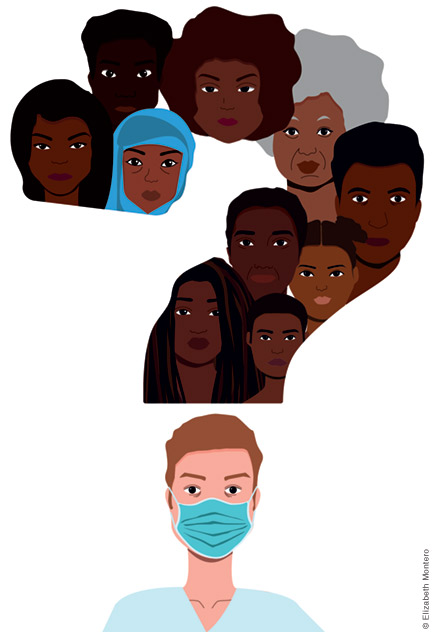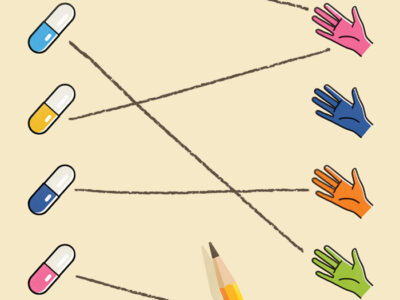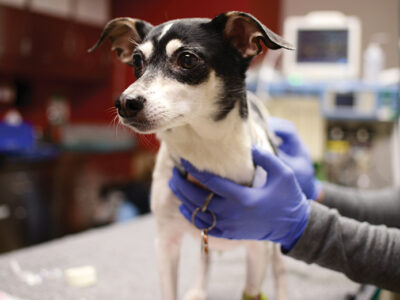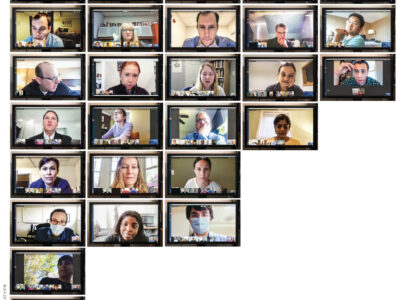
How talking about “vaccine hesitancy” distracts from the problem we really need to fix.
By Christopher A. Womack
COVID-19 has upended ordinary life in the United States, and perhaps no group has felt its wrath more acutely than African Americans. The pandemic has focused a searing spotlight on problems that have existed for many years. Some of them are news to no one: Americans from a wide variety of backgrounds recognize that economic inequality and social exclusion continue to constrict the lives of Black Americans in meaningful ways. Yet the pandemic has also exposed a dynamic that is far less appreciated—but whose importance has never been clearer: mistrust in our country’s healthcare system. And insofar as awareness of this problem has grown, it has mostly entered public discourse via a term that obfuscates and compounds the real issue. The term in question is “vaccine hesitancy.”
Although Black Americans are not much more likely than whites to contract the virus, according to CDC data, they are almost three times as likely to be hospitalized for it and twice as likely to die from it. Given that stark reality, one might assume that African Americans would be lining up in droves for the vaccine. But that has not been the case.
What’s behind this hesitancy? There’s been no shortage of experts weighing in on this question in US news media. But to fully grasp African Americans’ concerns, we need to take a step back to view the bigger picture. In that spirit, I went out and took the commonsense tack of talking to people. Too often, as one person memorably told me, the experts talk about Black Americans as though “we are not in the room.” So I conducted structured interviews with 35 African Americans—men and women from a wide range of socioeconomic and professional backgrounds whose ages ranged from 34 to 92.
Of the people I surveyed, 32 percent told me they either had or intentend to get the vaccine. To provide some perspective, the influenza vaccine’s acceptance rate among African Americans, based on CDC data for the 2019–2020 flu season, was 41 percent. (Current data show that the percentage of African Americans who have or would take the COVID vaccine is rising—but a bit more slowly than for other racial groups in the country.)
On its face, the ratio I encountered in my interviews appears to confirm the diagnosis of so many experts: Black Americans suffer from a lamentably high rate of “vaccine hesitancy.” But if a single revelation emerged from my interviews, it was that this catchall phrase obscures more than it illuminates.
“Vaccine hesitancy,” in the definition offered by Noni MacDonald, a founding member of the World Health Organization’s Global Advisory Committee on Vaccine Safety, “refers to delay in acceptance or refusal of vaccination despite availability of services. It is influenced by factors such as complacency, convenience, and confidence.”
Vaccine hesitancy is a well-documented phenomenon in the general population. Before COVID-19, experts typically discussed it in relation to the refusal of certain parents to inoculate their children against vaccine-preventable diseases like measles, polio, and pertussis. But the term may not be the best description of the concerns particular to the African American community. The difference lies in the fact that vaccine hesitancy in the general population hinges on perceptions about the safety of particular vaccines, whereas the main issue among African Americans is mistrust of the healthcare system in general.
The historical record is replete with instances of mistreatment of African Americans by the US healthcare system. They range from the experiments performed by James Marion Sims on enslaved Black women, to the notorious Tuskegee Syphilis study, to the non-therapeutic medical experiments conducted on inmates of Philadelphia’s Holmesburg prison in the latter 20th century. Yet for many of the people I interviewed, historical examples took a backseat to their own intimate experience of today’s hospitals and healthcare providers.
Some of their reflections echoed concerns common among many American patients—like the feeling that doctors treat them with one eye on the clock, making them feel more like “a number” to be dispatched than a person who merits close and unhurried listening. But 72 percent of my respondents told me they thought the healthcare system itself is biased against African Americans. The examples they gave were not limited to historical references, but rather full of stories about their own mistreatment by the healthcare industry. Some lamented failures in hospital care that seemed hard to explain except as a function of racial disparities. Many articulated a sense of alienation from physicians who had no connection to the patient’s community—leading to deficiencies in care that some chalked up to “unconscious bias” and others could not escape concluding was “on purpose.” Several respondents expressed an uneasy feeling that they felt they or their family members had been pushed too aggressively to participate in research studies. As one person told me, the issue isn’t that patients are recruited into medical research—which can benefit us all—but rather the manner in which healthcare providers went about it that disquieted them.
Concerns like these contributed to mistrust among my respondents across the age spectrum and regardless of socioeconomic status. And they are reflected in anecdotal and statistical evidence. When Serena Williams publicly revealed what struck her as a dismissive reaction by healthcare providers to serious complications after the birth of her daughter in 2017, Black women across the country had reason to nod in weary unison: they are three to four times more likely than white women to die of pregnancy-related complications. More recently, the death of Susan Moore, a Black physician who died of COVID-19 after alleging mistreatment by hospital personnel because of her skin color, reinforced longstanding suspicions among many African Americans about where they rank in the hierarchy of concern.
Some of the people I interviewed recounted stories of family members and friends who they felt suffered mistreatment by the medical community that led to severe consequences or death. In other words: the mistrust is real, and it is a product not just of abstract history but rather contemporary lived experience.
In that light, it is easier to understand the origins of skepticism about COVID-19 vaccines. “How can you find a vaccine in a matter of months,” as one respondent put it, “but when we discuss health issues in the African American community, [they say]: We are working on it—and that was 10 years ago?”
Here is the disconnect: experts are telling the African American community, Take the vaccine; it is safe. But for African Americans, any particular vaccine is only one part of a bigger picture. Why should I trust you, many of them wonder, given the pattern of mistreatment my community has suffered at your hands?
The experts are right about one thing: there is an immediate need for widespread vaccination to blunt the progression of this pandemic. But the only way to get there is to recognize that, where Black Americans are concerned, the core issue isn’t mistrust of a vaccine’s safety, but rather suspicion of a healthcare system that has failed to earn their trust.
Just as the pandemic has thrown this issue into stark relief, it also presents a golden opportunity to address it in a real and lasting way. Thus far governments, vaccine manufacturers, and other entities have committed vast resources to reach out to communities of color to discuss vaccine safety. All of those efforts should be applauded. But no less vital is change within the healthcare system itself, to make it more cognizant of and responsive to problems of its own creation.
Many of my respondents welcomed the sense of urgency around the COVID vaccine—but worried that the energy would dissipate before deeper issues can be resolved. Will the White House follow up press conferences combatting “vaccine hesitancy” with task forces charged with addressing mistrust of the medical system? Will those expert recommendations be filed in a binder, or spur meaningful action? As we address the issues of healthcare equity and disparity, will we opt for quick-and-easy, or embrace the comprehensive improvement necessary to safeguard the health of every American?
I feel optimistic that if we commit to the latter course, we can address and overcome mistrust of the healthcare system, transforming it to the benefit of us all.
Christopher A. Womack G’08 has over 30 years of experience in healthcare, focusing on healthcare disparities and policy.
.





Thank you for sharing, this was very informative .